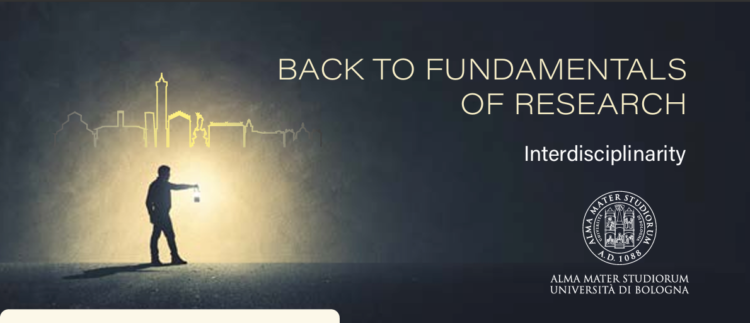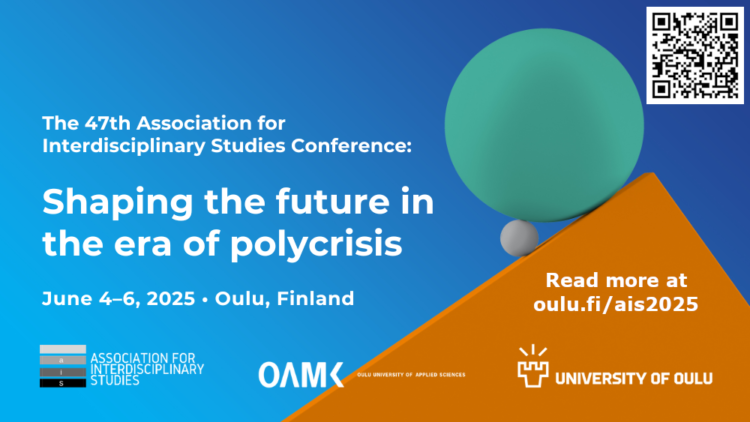SHAPE-ID member Prof Catherine Lyall was a keynote speaker at the University of Bologna's international…
SHAPE-ID Participation in Swiss Association for the Studies of Science, Technology & Society Meeting
The Swiss Association for the Studies of Science, Technology & Society (STS) Meeting 2021 took place online on 15-17 February 2021. The event was intended to encourage and promote the social, historical and philosophical study of sciences in Switzerland. This event lasted for three days and aimed to bring together bringing together STS scholars at all career levels.

The SHAPE-ID team presented two papers in the session Science Policy. Isabel Fletcher presented on Interdisciplinary Research and Problem Solving: Analysing European Policy Discourses, and Bianca Vienni Baptista presented on Shaping the scientific and policy discourses through problematization: a heuristic tool to disentangle inter- and transdisciplinarity.
Interdisciplinary Research and Problem Solving: Analysing European Policy Discourses
Isabel Fletcher
In Europe, and more widely, interdisciplinary research (IDR) has been identified as an important contribution made by researchers to tackling complex issues such as climate change, antimicrobial resistance and health inequalities. Using our analysis of recent policy literature on IDR, Isabel discussed the different narratives of IDR and its implications contained in publications produced by funding agencies, learned and professional societies, and research organisations. She argued that ideas of ”mission-oriented” research have become deeply embedded in the routine activities of these organisations. They are related to a “problem-solving” discourse as opposed to critical or philosophical ones (Klein, forthcoming), more in tune with Arts, Humanities and Social Sciences perspectives. The paper demonstrated how, despite their focus on collaboration, mission-oriented instrumental approaches to research prioritise particular kinds of technoscientific expertise at the expense of other kinds of expertise. This privileging occurs in the ways in which funding calls are designed, research questions are framed, evidence is evaluated and research impact is assessed. Finally, the paper proposed that less hierarchical and more flexible understandings of research and research collaboration are required in order to successfully undertake IDR, and in the process, perhaps, create useful new knowledge.
Shaping the scientific and policy discourses through problematization: a heuristic tool to disentangle inter- and transdisciplinarity
Bianca Vienni Baptista
Interdisciplinarity (ID) and transdisciplinarity (TD) constitute major topics in academic and policy discourses, mainly related to the particular requirements of mission-oriented knowledge production and research funding processes. Reports and policy briefs show the increasing demand from the policy sector to integrate interdisciplinary research (IDR) and transdisciplinary research (TDR) into calls and programs. There exists, however, a gap in terms of different definitions of ID and TD:
- In the policy discourse, the need for a common and unique definition of ID/TD in research funding programmes is seen as the response to the increasing demand to address more IDR/TDR in Europe. ID/TD are loosely defined and usually with interchangeable meanings.
- The academic discourse presents different definitions of ID/TD. These are heterogenous, plural and coexist in different contexts, reflecting multiple ways of approaching and dealing with complex problems.
In this paper, Bianca argued that the heterogeneity and multiplicity of understandings in ID/TD constitute an asset in research and policy and applied problematization as the main mode of inquiry that is complemented with a systematic literature review of academic and policy literatures. Building on the work undertaken in the SHAPE-ID project, she presented a heuristic tool to disentangle definitions in research and policy. This work contributes to a growing body of critical comparative studies of ID/TD and analyses of the dynamics of ID and TD in funding programmes in Europe.



